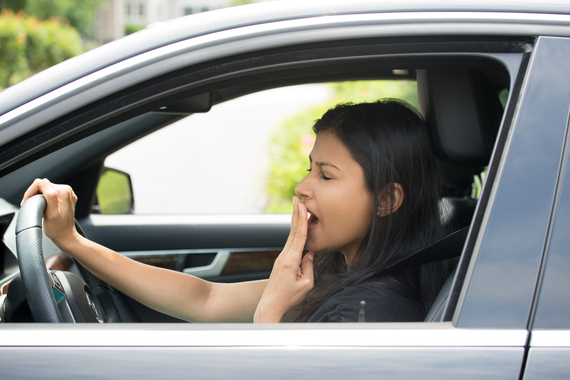Yesterday morning at 2 AM, we all set our clocks back and "gained" an hour. The end of Daylight Savings time signals the start of shorter days and longer nights. How did you use your extra hour this weekend? Did you use it to get an extra hour of sleep? If you did, was it a rare luxury or do you consistently get the proper amount of sleep?
Too often, we don't appreciate the benefits of a good night's sleep--and minimize the negative effects of a poor night's sleep. As a result, more than 37 percent of the U.S. workforce is sleep deprived. It affects everyone from shift workers to business owners and entrepreneurs. After suffering an injury resulting from exhaustion while building this site, Arianna Huffington has made fatigue a priority issue--she's advocated for us to refrain from using backlit devices like phones and tablets because they can diminish our ability to get a restful sleep.
According to the American Academy of Sleep Medicine and the Sleep Research Society, adults should get seven or more hours of sleep each night. That should be easy since we are biologically programmed to be alert during the day and sleepy at night through the chemical release of cortisol and melatonin. However, with busy lives in a 24/7 world, it takes commitment and effort to ensure that you get the quality shuteye that you need.
Restful sleep helps our bodies regain the stamina we need to face the day, but when we don't get enough, our health is affected--in the short and long term. Chronic sleep deprivation raises the risk for depression, obesity, cardiovascular disease and even reproductive issues.
Short-term problems arise when our busy schedules work against our natural sleep patterns. We lose two hours of sleep here and three hours there without realizing that cutting back on sleep, even temporarily, can have serious effects. We can see the high-cost of sleep-deprivation on our roads. One study showed the odds of being in a crash or near crash were nearly 3 times higher when the driver was drowsy.
When fatigue follows us into the car, we're putting ourselves and other drivers on the road at risk. The numbers are too big to ignore: a recent Governor's Highway Safety Association report estimated 328,000 crashes due to drowsy driving annually, with 109,000 resulting in injury and 6,400 resulting in a fatality.
The National Sleep Foundation has declared November 6 -12 Drowsy Driving Prevention Week--here are some tips so you can stay alert and safe on the road as the days get shorter and the holidays approach:
•Get the recommended amount of sleep every night. Parents, if you have a teen driver, keep in mind they should be getting 9 or more hours of sleep. Teens who get less than 8 hours of sleep are one-third more likely in be involved in a crash.
- Avoid alcohol and medications (prescription and over-the-counter) that can amplify fatigue.
Fatigue is impairing, much like alcohol or drug intoxication. For your own health and safety as well as the safety of your loved ones and others on the road, make sleep a priority. Turn that extra hour of sleep from a rare luxury into an everyday benefit and take a step forward against drowsy driving.
Deborah A.P. Hersman is president and CEO of the National Safety Council
